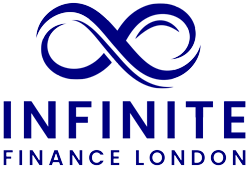Commercial Investment Mortgages
A commercial investment mortgage is a loan designed specifically for purchasing or refinancing commercial properties with the intent to generate income. This is distinct from owner-occupier commercial mortgages, which are used for properties that the buyer will use for their own business operations.
Unlike residential mortgages, commercial investment mortgages typically involve larger loan amounts, higher interest rates, and different eligibility requirements. These mortgages can be used to finance various types of commercial properties, including office buildings, retail spaces, industrial complexes, and hospitality venues.
Eligibility Criteria for Commercial Investment Mortgages
To qualify for a commercial investment mortgage, lenders evaluate several factors. The primary consideration is the property's rental income, as this will typically cover the monthly mortgage payments.
The down payment, or equity in the property, is another important factor, as it helps determine the loan-to-value (LTV) ratio. This ratio indicates how much you need to borrow from the lender.
Your credit score can also impact the lenders available to you, as well as the rates you're offered. Some lenders are more flexible with applicants who have poor credit, while others are stricter.
Lenders will also assess your experience with commercial property ownership. While some lenders accept experience in residential buy-to-let properties, others specifically require commercial property experience.
LTV Ratio and Down Payments
The loan-to-value (LTV) ratio is a critical element in commercial investment mortgages. It compares the loan amount to the property's appraised value. Lenders typically set maximum LTV ratios they are willing to lend, and the lower the LTV, the less risky the loan is for them, often leading to better loan terms. Conversely, higher LTV ratios usually result in higher interest rates.
Down payments for commercial investment mortgages typically range from 25% to 40% of the property's purchase price. The specific down payment required can depend on factors such as the property's industry and the expected rental income.
Having enough capital for a sufficient down payment demonstrates your commitment to the investment and reduces the lender's risk.
Types of Commercial Investment Mortgages
Commercial investment mortgages come in several variations, each tailored to different investment needs. The most common rate types are:
- Fixed-Rate Mortgages: These offer a stable interest rate over a specified period, making monthly payments predictable.
- Variable-Rate Mortgages: The interest rate fluctuates based on market conditions, often offering lower initial rates but carrying the risk of future rate increases.
Key Considerations for Commercial Investment Mortgages
Before pursuing a commercial investment mortgage, it's important to evaluate several key factors:
- Property Selection: Conduct thorough market research and due diligence to find properties with strong growth potential and profitability.
- Financial Analysis: Assess the property's income potential, operating costs, and projected cash flow to ensure the investment aligns with your goals.
- Loan Structure and Terms: Review key details such as the interest rate, LTV ratio, repayment terms, and any associated fees or penalties.
- Exit Strategy: For interest-only mortgages, it's crucial to have a defined exit strategy in place, such as selling the property, refinancing, or other methods to repay the loan at the end of the term.
By carefully considering these aspects, you can make informed decisions that support the long-term success of your commercial investment.



